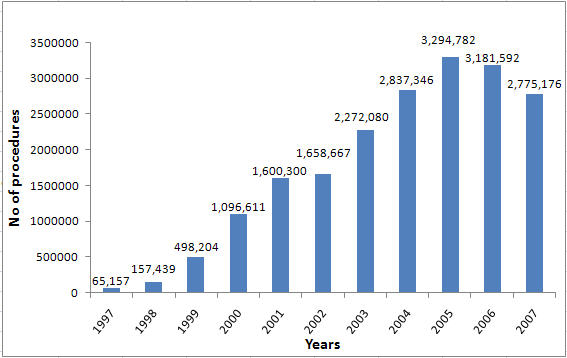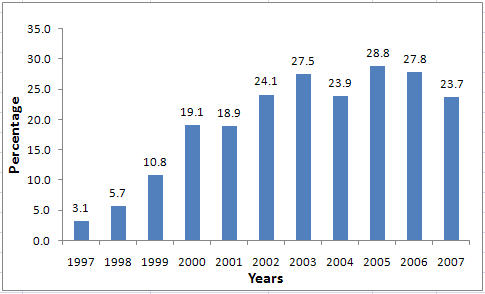Botox - from Medical Procedure to Household Word
Objective
- Determining the factors driving the adoption of invasive medical procedure for consumer application
Methodology
- We used secondary research for data collection
- Botox procedure data has been taken from ASAPS (American Society of Aesthetic Plastic Surgeons)
- Databases used to search articles are Factiva and Google scholar
- Search query used is:
- botox, botulinum toxin: to find the total number of articles published on botox
- botox and wrinkles, botox and frown, botox and lines: to find skin care articles using botox
- Determined the correlation between the number of articles published and number of botox procedures
- Analyzed the articles published to determine the market drivers
Technical overview
Botox injection is a diluted form of botulinum toxin type A which is injected into facial muscles to paralyze or weaken the muscles that form wrinkles. Botulinum toxin is a medication and a neurotoxic protein produced by the bacterium Clostridium botulinum. It is the most toxic protein known with an LD50 of roughly 0.005-0.05 µg/kg.
It is sold commercially under the brand names:
- Botox, BTXA, Dysport, Myobloc, Neurobloc and Xeomin which are used in the treatment of muscle spasms.
- Botox Cosmetic and Vistabel are available for cosmetic treatment.
Once the procedure is performed it last for 3 to 6 months. No severe side effects have been reported, but the dermatologist or medical practitioner administering botox injection should be experienced.
Market overview
Initially botox was marketed for its medical applications in treating various muscle-related conditions but later its marketing was broadened to include its cosmetic application—smoothing out frown lines between the eyebrows.
Y-o-Y sale of botox procedures
Botox procedures as a percentage of total cosmetic procedures

